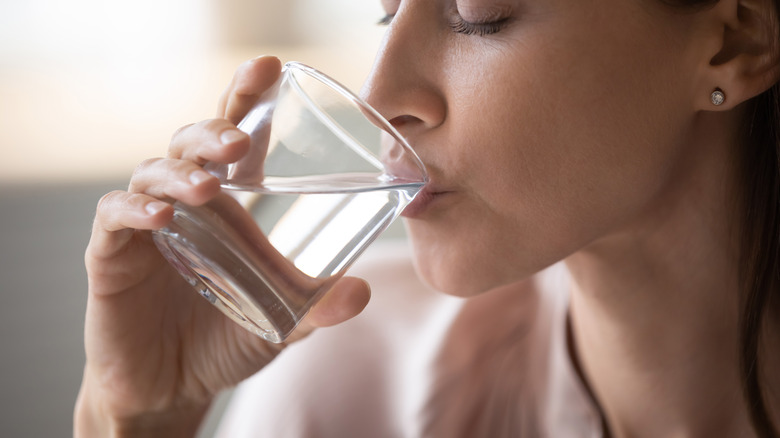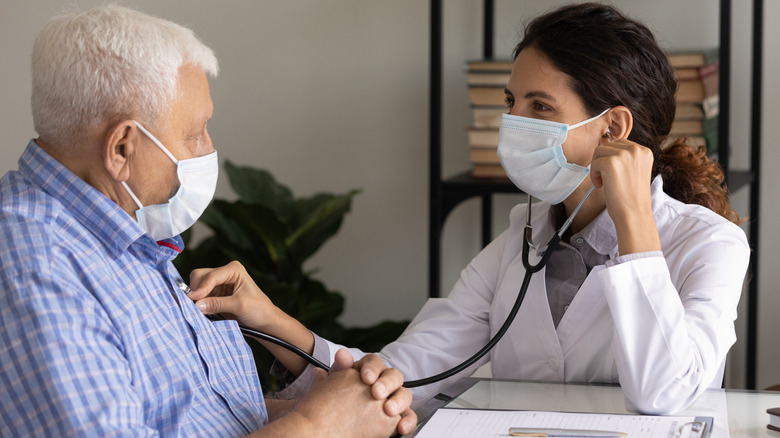Does Dehydration Cause High Blood Pressure?
High blood pressure, or hypertension, occurs when the heart uses too much force while pushing the blood against the walls of your blood vessels. This ultimately causes the heart and arteries to work too hard (per American Heart Association). When left untreated, hypertension can lead to serious cardiovascular conditions, including heart attack and stroke.
There are many causes that contribute to high blood pressure. The Mayo Clinic shares that you could develop secondary hypertension from an array of factors, including kidney disease, thyroid conditions, genetic blood vessel disease, or from certain medications. Primary hypertension refers to having high blood pressure with no known underlying causes, which many adults develop as they age.
There are other reasons your blood pressure may rise, many being lifestyle choices that, when adjusted, can help lower your pressure. You might be surprised to learn that even dehydration can impact your blood pressure. Here are steps you can take to reduce your risk of high blood pressure.
Dehydration negatively impacts blood pressure
According to Healthline, dehydration can lead to serious health problems and can wreak havoc on blood pressure. Being dehydrated can cause your blood volume to decrease, affecting your blood pressure by lowering it. When blood pressure is too low, the organs throughout the body don't receive the nutrients and oxygen needed to work optimally and can begin to shut down.
Being dehydrated can also lead to high blood pressure. MedicineNet reports that when the body is dehydrated, the harder the organs must work. The kidneys will work to regulate body fluid by retaining sodium and water, which can lead to elevated blood pressure. When dehydrated, the brain will release more of the hormone called vasopressin. It narrows the blood vessels and encourages the body to retain more sodium, trying to compensate for a lack of hydration. This process also leads to hypertension (via Healthline).
Staying hydrated, eating a balanced diet, and exercising are good lifestyle choices for maintaining healthy blood pressure. Checking in regularly with your doctor is also essential.


